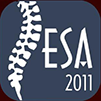Subject Area
Lumbosacral spine, Tumors
Article Type
Original Study
Abstract
Background data: Tumors of the cauda equina represent an uncommon group of tumors with diverse pathologies and clinical manifestations. Surgery represents the mainstay of treatment for these tumors. Study design: Retrospective case series. Purpose: This study evaluates the clinical outcome and the extent of resection in a group of patients operated upon for resectioning tumors of the cauda equina in the absence of intraoperative neurophysiological monitoring. Patients and Methods: This retrospective study was conducted on 25 adult patients operated upon for resection of primary cauda equina tumors in the absence of intraoperative neurophysiological monitoring. The modified McCormick scale was used for the evaluation of the functional outcome of the patients 12 months after surgery. The outcome was graded into four groups: excellent, good, fair, or poor. The extent of resection was assessed by magnetic resonance imaging with contrast. Results: The mean duration of symptoms before diagnosis was 13.8 ± 8.2 months. Low back pain was the most common symptom (96%), with 44% of the patients having neurological deficits at presentation. There were 13 nerve sheath tumors (9 schwannomas and four neurofibromas) (52%) and eight ependymomas (32%). Gross total resection was achieved in 80% and subtotal resection was achieved in 16%, while partial resection was achieved in 4% of the patients. Excellent, good, fair, and poor clinical outcomes were achieved in 68%, 4%, 20%, and 8% of the patients, respectively. Conclusion: Cauda equina tumors are mostly benign with a favorable prognosis. High rates of gross total resection with favorable clinical outcomes could be achieved in most of these tumors, even in the absence of intraoperative neurophysiological monitoring. (2022ESJ258)
Keywords
cauda equina, ependymoma, schwannoma, outcome. resection
How to Cite This Article
El Sayyad, Hossam Abdel Hameed; Zaghloul, Mohamed Shehab Saad; Salama, Mohamed Mamdouh; and Nagy, Mohamed Ragab
(2022)
"Surgical Resection of Tumors of the Cauda Equina in the Absence of Intraoperative Neurophysiological Monitoring: Experience with 25 Cases,"
Advanced Spine Journal: Vol. 41
:
Iss.
2
, Article 2.
Available at: https://doi.org/10.57055/2314-8969.1260











